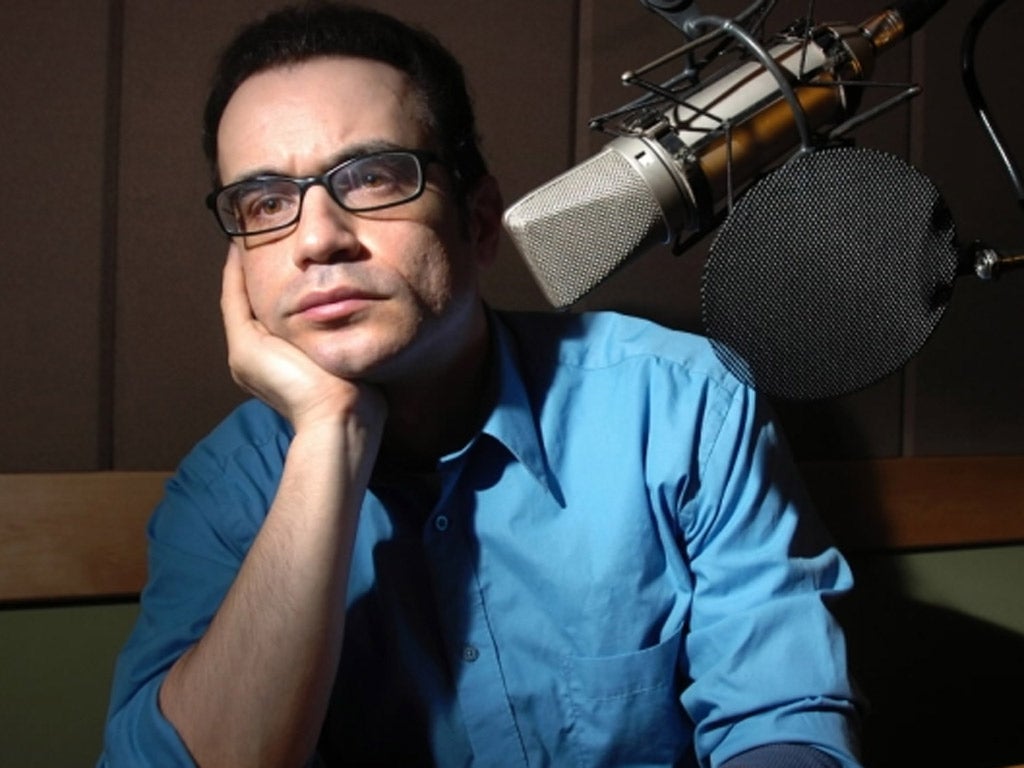The Week in Radio: WireTap is a classy comedy that doesn't need canned laughter

Your support helps us to tell the story
From reproductive rights to climate change to Big Tech, The Independent is on the ground when the story is developing. Whether it's investigating the financials of Elon Musk's pro-Trump PAC or producing our latest documentary, 'The A Word', which shines a light on the American women fighting for reproductive rights, we know how important it is to parse out the facts from the messaging.
At such a critical moment in US history, we need reporters on the ground. Your donation allows us to keep sending journalists to speak to both sides of the story.
The Independent is trusted by Americans across the entire political spectrum. And unlike many other quality news outlets, we choose not to lock Americans out of our reporting and analysis with paywalls. We believe quality journalism should be available to everyone, paid for by those who can afford it.
Your support makes all the difference.I might, in the past, have mentioned my struggles with radio comedy. In writing this column, I have put myself through immeasurable torture – that is, listening to a parade of stand-ups bleating about traffic wardens, missing socks and sagging genitalia in the late-night slot – in the hope that somebody might cajole my face into something approximating a smile.
I have waded through any number of daytime sitcoms and sketch shows hoping they might raise my spirits but, to the ire of Twitter users for whom life is evidently one non-stop LOL-fest, I have remained unmoved. It's been tough, let me tell you.
Lately, though, I've made a discovery. Admittedly, it's one that a few million people thousands of miles away made several years ago, but what can I say? This show goes out in Canada and I don't get out much. My point is that it's comedy and it has restored my will to live.
WireTap, on CBC (Canadian Broadcasting Corporation) is the brainchild of Jonathan Goldstein, who is a novelist, a former producer of Ira Glass's hit US radio show This American Life, and the show's host. This weekly programme, which can be downloaded by overseas listeners, is structured around themes such as sloth, legacy and courtship. In between his own deadpan reflections, Goldstein seeks out the opinions of friends and family, or rather "friends and family", since it is often suggested that the show is partly scripted and his contributors are actors. If this is the case – and it probably is since no one person can have this many friends – their naturalism is astonishing.
Then there's Goldstein himself, a thoughtful and charismatic host, unflappable in the face of his babbling guests and yet permanently on the verge of an existential crisis. Goldstein revels in the sad-sack role – in the past he has debated with friends to see exactly who has had the most pathetic life experience – without ever crossing into the realms of neediness. There are no punch lines here and – hallelujah! – no canned laughter. It is, in its simple discussions of universal anxieties, gentle, intimate and clever.
Last week's show focused on appearance and how "it is the window through which the world decides what to make of us". Goldstein asked a selection of people to sum up their sartorial style and the answers ranged from "ageing Lolita" and "Estonian mushroom gatherer" to "colour-blind hobo" and "Little Women meets Cher". He reflected on his own hapless relationship with fashion – "It wasn't until my late thirties that I learned a belt did not in fact make all (trousers) one size fits all." He then phoned up his mother, who I still want to believe really is his mother, who said she gave up worrying about her appearance when she got married. Now she alternates between two trousers-and-T-shirt combos and is as happy as a clam.
This week, Goldstein explored the concept of discomfort, and invited his "friend" Jason to share an epic tale about trying to impress a girl while needing to pee. It started at a children's piano recital, with Jason trapped in the midst of a row of parents all filming their little darlings, continued in the bathroom, which it turned out was being used as a children's changing room and moved out into the street where, by now dishevelled and in considerable pain, he tried and failed to find a secluded spot to unburden himself. It ended with him in a police holding cell finding "relief and release" in front of "two benches full of dudes... and, y'know, it was kind of empowering".
I don't care if it's not true. I'm still laughing.
Join our commenting forum
Join thought-provoking conversations, follow other Independent readers and see their replies
Comments